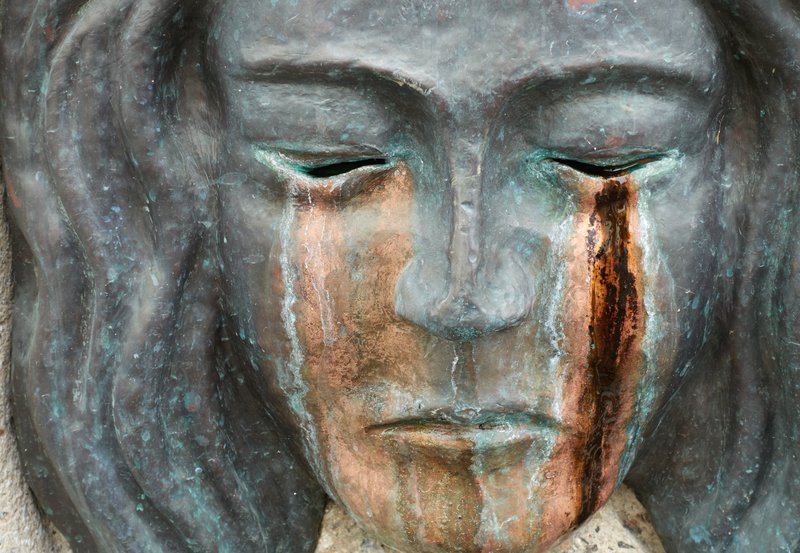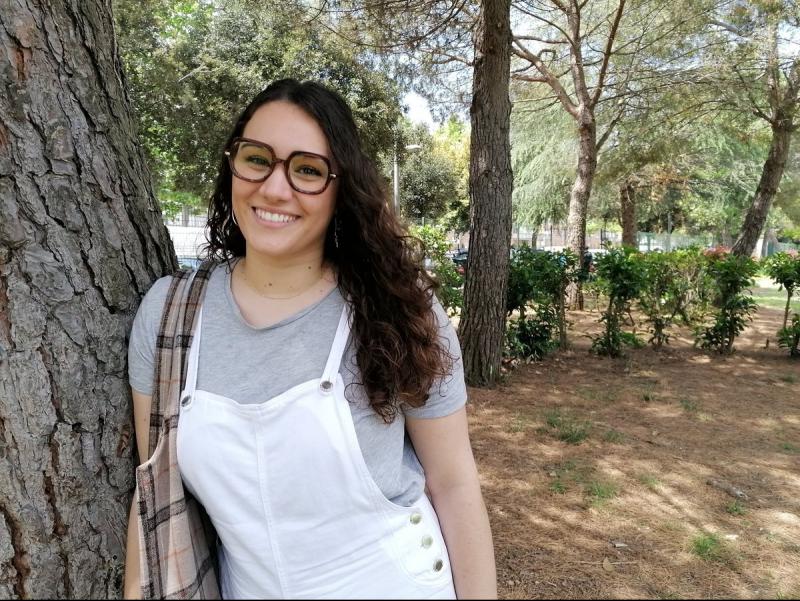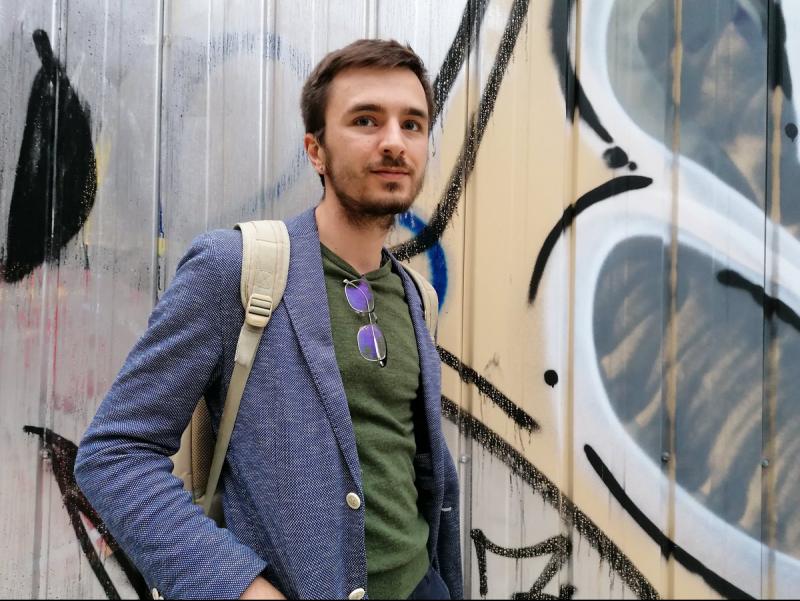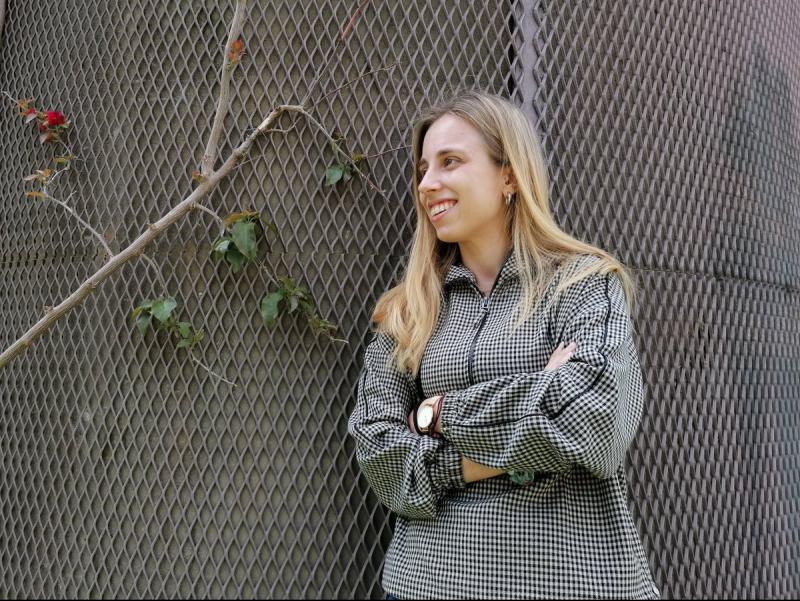The unseen suffering of the young
Some 75% of the initial symptoms of a mental health problem appear before the age of twenty-five. Young people are the great forgotten when it comes to a stigmatised issue aggravated by the pandemic
“Mental health issues are not just a matter for adults, they strongly impact young people, teens and children”
“With the economic crisis there are more unemployed people, And we know rates of domestic violence have gone up” 50 year-olds with depression probably had the first symptoms at 20 “SUPPORT MUST BE PROVIDED FROM A COMMUNITY PERSPECTIVE”
Teen suicide attempts rose 27% in Catalonia last year, according to Catalan government data. The Association against Anorexia and Bulimia has published equally alarming statistics: 2020 saw a 105% increase in visits (face-to-face or online) of relatives and people affected, 97% in phone consultations and 563% in email consultations. What is worse, however, is that the data for the first quarter of 2021 have continued along the same lines. The same applies to disorders such as depression and anxiety, which have also gone up among young people. A study by Hospital Sant Joan de Déu shows that mental health emergencies in teens have risen by 40%, with more cases of eating disorders, self-harm and suicidal ideation.
Tip of the iceberg
Yet the numbers are just the tip of the iceberg and point to a more serious reality: young people who do not know how to ask for help and who are immersed in a society in which mental health is still stigmatised. It is a subject people find hard to talk about, but fortunately more are now doing so and thereby helping to smash taboos.
“We normally think of mental health issues as a matter for adults, but they are not, they are strongly impacting young people, teens and children, and we have few tools to treat them,” says Marta Poll, head of Catalonia’s Mental Health Federation. The federation brings together over 70 organisations of family, friends and people with problems and has been working for a more inclusive society for over 25 years. They are now concerned about the effects of the pandemic. “We need to be better informed, we need to train young people so that we can talk a lot more about these things. Mental health is a problem closely associated with stigma and people who have a problem are mistakenly considered to be more fragile and vulnerable. Everyone in this society is supposed to be successful. That’s why it’s important that when a young person feels bad, they can find someone to help them,” says Poll.
Overcoming prejudices
Naturally, our preconceptions do not help. “We have the perception that nothing bad can happen to young people, that they are at a stage in life that’s all fun and partying. It’s actually a very demanding time, when which long-term decisions have to be made, such as whether to study or find a job. It’s a time of great expectation but the brain has not yet fully developed,” says Ximena Goldberg, researcher at the ISGlobal global health organisation, a research centre promoted by La Caixa Foundation.
This research centre has carried out the Covicat project to evaluate, among other things, the effect of lockdown on mental health. Goldberg says there are a number of situations that raise the risk of developing problems like depression and anxiety, and this was already happening before the pandemic began. These situations include loneliness, unemployment, feeling afraid, interpersonal violence, lack of access to green spaces, or the impossibility of doing physical activity. “The pandemic has exposed everyone to many of these risk factors. We went through a two-month lockdown period in which we were all scared. With the economic crisis there are also more unemployed people. And we also know that the rates of domestic violence have gone up,” she adds.
In the case of young people, they have also found themselves at a critical juncture. “Those who started their degrees have seen their progress interrupted and this generates a lot of uncertainty and the feeling of a lack of control over one’s future. The inability to plan and feeling that your life is not in your own hands greatly increases the risk of developing a mental health problem,” she adds.
Detecting these problems as soon as possible is also important: 40 to 50 year-olds with depression, anxiety or even schizophrenia probably had the first symptoms between 15 and 20, and the pandemic has just made that worse. A study carried out before the pandemic by the Autonomous University of Barcelona showed very high levels of anxiety and depression (50%) among students. With lockdowns and restrictions, the ways young people deal with such problems – spending time with friends, partying, doing sport – were denied them and their use of social media increased greatly. “Exposure to cybercrime has gone up and it remains to be seen what impact this will have,” says Goldberg.
Community response
The Covicat project – renamed Content – has been extended and data will continue to be collected, as the effects on mental health do not occur immediately but over the long term. Meanwhile, Goldberg argues that in preparing for future pandemics the issue of mental health should be taken into account from the outset. More resources are needed, she says, not only in the field of clinical care but also in psychological health. “We have to work in the community. It does not necessarily have to be a super-specialised or medicalised care, rather the opposite: a community intervention based on the social network in the neighbourhood or village, with a person with psychological training to help create networks of containment and mutual support,” she insists.
Poll agrees that prevention is needed, and not only from the health system. “The education system is a key element. Families, too, and places where young people go and relate to others. All of these actors need to be informed and prepared to be able to detect these situations. Resources must be made available and must be standardised and networked. There needs to be better support for young people, because we’re finding that when cases are detected there has already been a problem behind it for a long time,” she says. She also regrets there are not enough public resources for the most serious cases, and she stresses regional inequity. “It’s not the same to have a mental health problem in Barcelona as in Terres de l’Ebre or Pallars,” she notes.
More coverage
Up to the age of 18, mental health problems are dealt with by CSMIJs (child and adolescent mental health centres), of which there are around 50 in Catalonia. After 18 years of age, care is the responsibility of adult medical centres. “Support must be provided from a community perspective, through social participation. The CSMIJs need greater capacity and coverage,” says Poll, who also insists that the involvement of associations is needed to help young people connect with the community and find peer support. “This is very important, because if not we end up medicalising them and taking them out of this more active social context.”
“We have a lot of demands from leisure groups, Scout groups, youth clubs... They ask us for information, as they need tools for when young people with these difficulties show up. If they don’t know how to help them, then sometimes they lose them. And we have to work so that those who don’t get to these community spaces also have access,” she says. The same goes for families, who often do not know how to manage the situation, or about the resources available or how to find support, and that is precisely because there is very little talk about these issues and a tendency to hide them.
Saturated services
Cristina Andreu is a social educator and councillor of the municipal group Guanyem Girona, which recently had a motion passed in the local plenary session asking for increased resources to attend to the mental health of Girona residents, especially young people. “Young people are not going to ask for help from their primary care centres (CAP), which they don’t associate with mental health. In Girona, we’re lucky that the Center Jove de Salut works as a reference space in matters of sexual and reproductive health, but also in emotional health. Among the users are young people in the city whose CAPs are located elsewhere and who therefore cannot access their primary care psychological service,” she explains. What Guanyem Girona has requested is that this service, which currently only has two psychologists and is saturated, be strengthened and integrated into the Catalan government’s Health Network. The same motion also called for a community training plan. “Training also depends on empowering the population, so that the person becomes aware that their discomfort is legitimate. We need to start making mental health visible and stop stigmatising it. In the same way that I say that my knee has been hurting for days, I should be able to say that I haven’t been able to sleep for days because I feel sad,” says the councillor.
For Poll, the way to break the stigma is to talk about it more. “Success stories need to be told, and when someone feels bad they should be able to express what is happening to them. The idea that people with mental health problems are unstable, vulnerable or dangerous should be avoided,” she says. We can all at some point find ourselves in situations where it is emotionally difficult for us to move forward “and we need to be able to express it and talk about it at home, at school, with friends.” “We have to act naturally,” she adds “and understand that it’s better to ask for help immediately so as to minimise the suffering.”
feature mental health
feature mental health
Emotional first aid Guides for dealing with young sufferers
A WhatsApp channel to prevent juvenile suicide, an emotional first aid programme, and training sports instructors and school canteen staff are some mental health initiatives recently put forward by Barcelona city council. As for the Catalan government, it has launched the project What’s up! Com vas de salut mental? for the 2019/2020 school year, providing secondary schools with materials, resources and experiences to address stigma and discrimination. The project consists of different teaching units that can be done in class and includes a classroom visit from an activist and former sufferer, who tells their life story. It has been carried out in conjunction with Obertament, an organisation that brings together the main mental health bodies in Catalonia.
The first official visit of Catalan president Pere Aragonès was to the child psychiatry service at the Parc Taulí Hospital in the city of Sabadell. During the visit, Aragonès announced a new comprehensive mental and emotional health plan that will be aimed at helping to alleviate the serious effects of the pandemic. It remains to be seen what form exactly the government plan will take, but it is true that mental health is closely related to social and economic circumstances. As explained in one of the latest reports from the Catalan Ombudsman, economic factors are important, as there is a greater risk of developing mental health problems in disadvantaged environments. Also, with public facilities saturated, it is clear that if you can afford private care the problem is more likely to be fixed sooner.
Given the lack of resources in public services, it is often dedicated organisations and associations that have to try and make up for the chronic deficit. They also provide a lot of the training, information, prevention and awareness. A good example are the guides published by the Mental Health Federation of Catalonia on how to deal with children, teenagers and young people with problems. There are three documents that offer advice for dealing with situations of tension and conflict, self-harming behaviour, and cases of social isolation. A fourth guide is dedicated to explaining to family and professionals in the environment of children and young people how the mental health network in Catalonia works and what services and resources are available to them.





